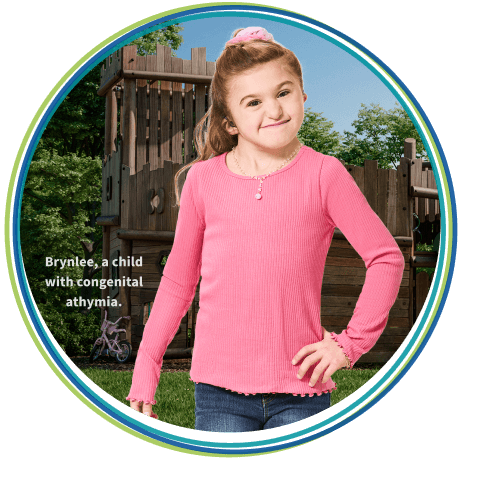Important Safety Information
Infection Control: Immune reconstitution sufficient to protect from infection is unlikely to develop prior to 6-12 months after treatment with RETHYMIC. Immune reconstitution is needed for the body to produce cells in the immune system to fight infection. Your child’s doctor should advise you of infection control measures which should be followed immediately after treatment and until the immune system starts working at a sufficient level. Monitor your child closely for signs of infection, including fever. Your child should be maintained on immunoglobulin replacement and prophylactic antimicrobials until certain criteria are met as determined by your doctor.
Graft versus Host Disease (GVHD): RETHYMIC may cause or make pre-existing GVHD worse. Your child will be monitored for GVHD and treated if needed. Symptoms of GVHD may include fever, rash, enlarged lymph nodes, inflammation of the gastrointestinal system and/or diarrhea.
Autoimmune Disorders: Autoimmune-related adverse events occurred in patients treated with RETHYMIC. These events included: low platelets, low white blood cells, protein in urine, low red blood cells, hair loss, poor thyroid function, inflammation of liver, inflammation of the joints, inflammation of the spinal cord, loss of pigment in the skin, eyes and hair, overactive thyroid function, and loss of function of the ovaries. Your doctor will monitor your child regularly including performing blood tests.
Kidney Disease: Treatment with RETHYMIC is a risk factor for death in patients with pre-existing kidney disease.
Cytomegalovirus (CMV) Infection: In clinical studies with RETHYMIC, 4 out of 4 patients with pre-existing CMV infection prior to the implantation with RETHYMIC died. Talk to your doctor about the benefits/risks of treatment if your child has pre-existing CMV infection.
Cancer: Due to your child’s weakened immune system, there is increased risk of developing certain cancers. Your child’s doctor will monitor your child through testing for Epstein-Barr virus (EBV) and cytomegalovirus (CMV), which are two viruses that can cause cancer.
Transmission of Serious Infections: Because RETHYMIC is made from human tissue, and animal products are used in the manufacturing process, transmission of infectious diseases may occur.
Vaccinations: Your child should not receive any vaccinations until he or she has met certain requirements set by your doctor. Talk to your child’s doctor prior to any vaccinations.
Anti-HLA Antibodies: Prior to receiving RETHYMIC your child will be tested for HLA antibodies, which are proteins that may be present in your child’s blood. If your child has these antibodies, he/she will need to receive RETHYMIC from a donor that does not express those HLA proteins.
HLA Typing: If your child has received a hematopoietic cell transplantation (HCT) or a solid organ transplant, they will have a test to look for specific antibodies that could interfere with the effect of RETHYMIC. If they are present, then it will be necessary to receive RETHYMIC from a certain group of donors that do not have these proteins.
Deaths: 105 children participated in the clinical studies of RETHYMIC. 29 of the patients died, including 23 in the first year after implantation of RETHYMIC.
What are the most common side effects with RETHYMIC?
The most common side effects with RETHYMIC are hypertension (high blood pressure), cytokine release syndrome, rash, hypomagnesemia (low magnesium), renal impairment / failure (decrease of kidney function), thrombocytopenia (low platelets), and graft versus host disease.
These are not all of the possible side effects of RETHYMIC. Talk to your child’s doctor about any side effect that bothers your child or does not go away.
You are encouraged to report side effects to the FDA at 1-800-FDA-1088 or www.fda.gov/safety/medwatch.


